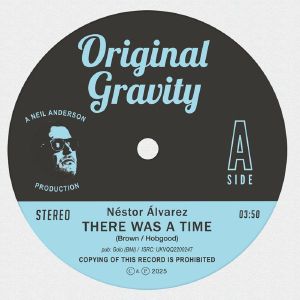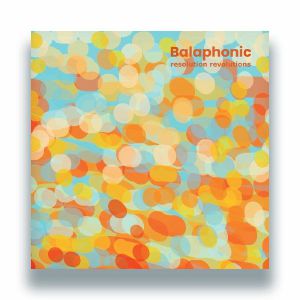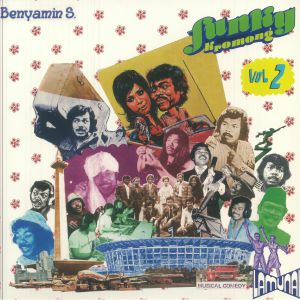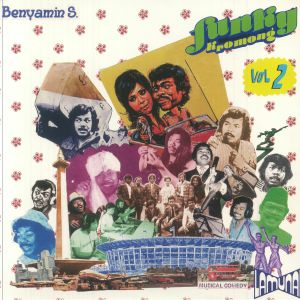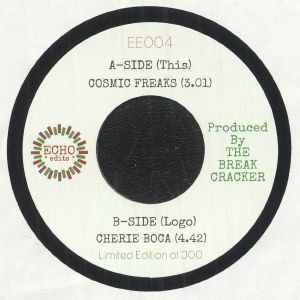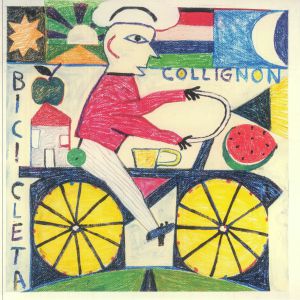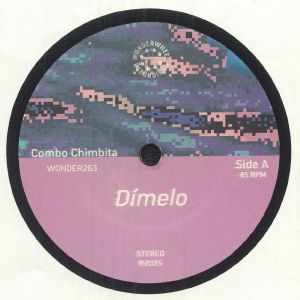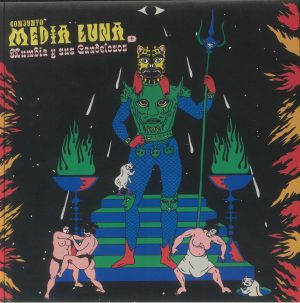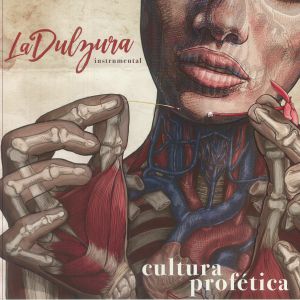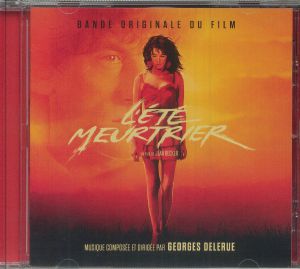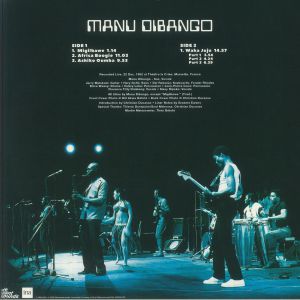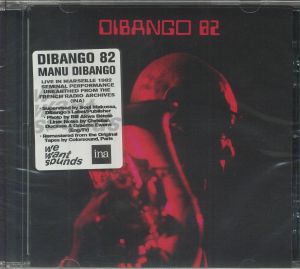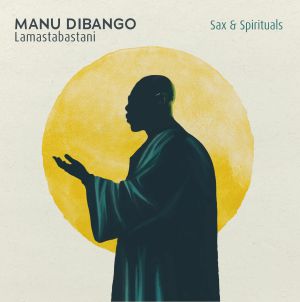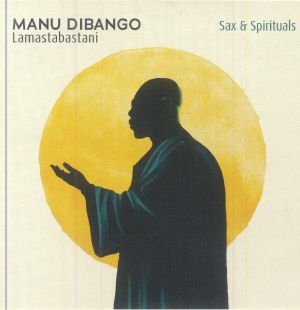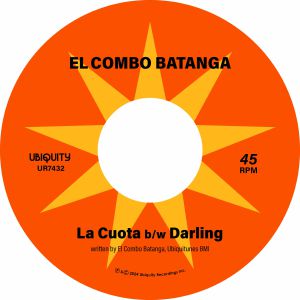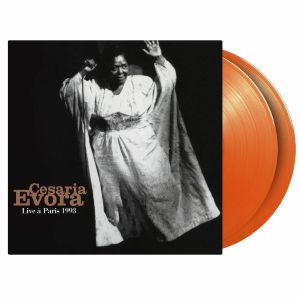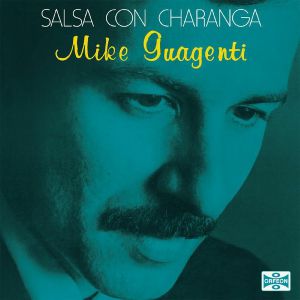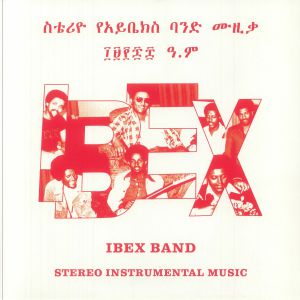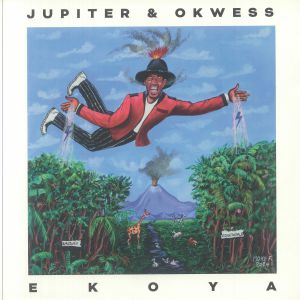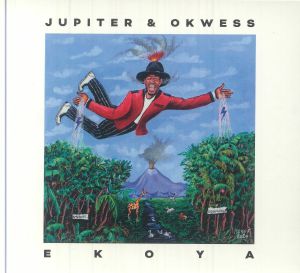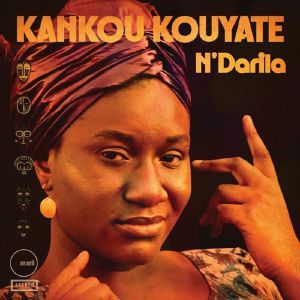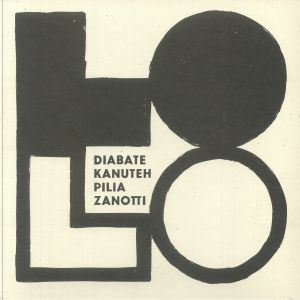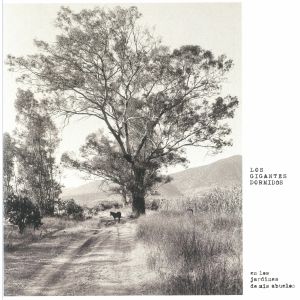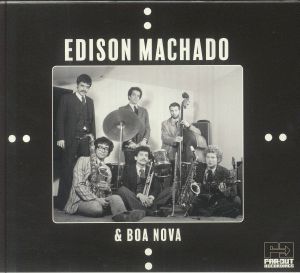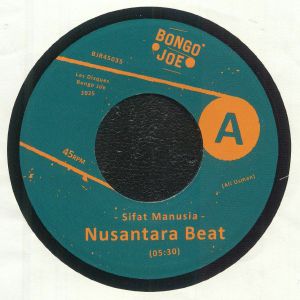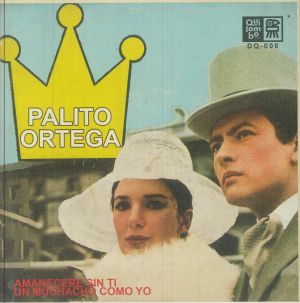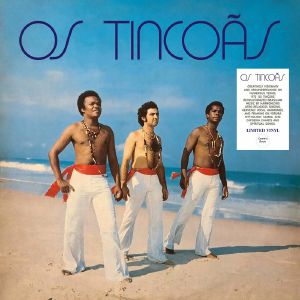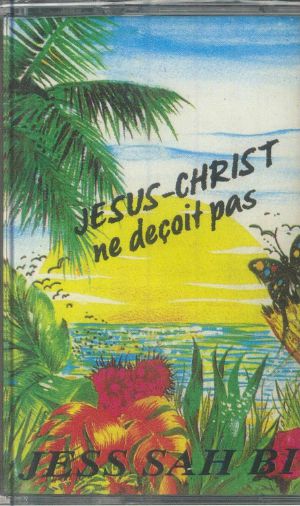Filter
在庫状況
Featured
リリースタイトル
値段
タグ
New releases last four weeks: International
International vinyl released in the last four weeksCat: STRUT 483LP. Rel: 23 Apr 25
Review: In celebration of 50 years in the performing arts, Idris Ackamoor presents Artistic Being for Record Store Day 2025-a powerful blend of jazz, spoken word and activism. Featuring the voices of acclaimed actor Danny Glover and stage legend Rhodessa Jones, this record captures highlights from the Underground Jazz Cabaret, which was performed during Black History Month 2024 at The Lab in San Francisco. Co-produced by Ackamoor's Cultural Odyssey, the release fuses poetic storytelling with evocative musical textures while reflecting on social justice, identity and resilience. Artistic Being is a profound statement from a visionary artist.
… Read more in stock $33.25
in stock $12.58
Review: "Danama" is a Bambara word meaning "trustworthy" that reflects the essence of Arat Kilo's fifth album, which was recorded in Spring 2024. The album embodies optimism, collective strength and cultural blending, while advocating confidence during these times which are so marred by wars, nationalism and environmental crises. Arat Kilo is France's leading Ethio-jazz ensemble and they take a fresh approach by experimenting with sound production by adding new instruments like synths, bass clarinet and Malian n'goni, alongside their signature grooves. These tunes are influenced by genres like Jersey club and 2-step and merge with Ethiopian jazz and global rhythms. Mamani Keita's poignant lyrics and social critique from Mike Ladd make this a resounding call for hope and unity.
… Read more in stock $30.16
BADBADNOTGOOD / VARIOUS
Brazil 45 Boxset Vol 6 (Record Store Day RSD 2025) (limited 5x7" in spot-varnished box set) (1 per customer)
Cat: MRB 7226. Rel: 26 Apr 25
in stock $53.37
Review: Now working under the alias Balaphonic, long serving Manchester artist Danny Ward steers his ear for percussion into something warm, rhythmically rich and hypnotic. He opens with 'Sunflowers in Dub (Deep Summer Mix)', where sitar, harmonica and fluttering keys glide across a humid dubscape, then folds in sun-dappled samba on 'Disorganics (All Strings Mix)', all brushed guitars and delicate groove. 'Six Fingers' leans deeper into Afro-Cuban melancholy, while 'Udders' chops South American drums into psychedelic loops, teasing out low-end heft. A standout collaboration with Ocean Waves Brasil, 'Oxum' blends gentle acid with dreamy textures and Afro-Brazilian swing, before closer 'Bloco Manco' lets off the brakes-delay-lashed, bass-heavy and totally locked-in. It's music built for dancefloors, but with the patience and touch of a drummer who knows when to let things breathe.
… Read morePlayed by: Phat Phil Cooper
in stock $20.68
in stock $27.11
in stock $21.79
in stock $31.85
Review: Funky Kromong Vol. 2 builds on the success of its predecessor with another bold and bright selection of tracks by legendary Indonesian artist Benyamin Suaeb for Lamunai Records. This volume highlights Suaeb's genius for fusing traditional Betawi music with infectious funk grooves and witty satire. Tracks like 'Kompor Meleduk', 'Cong-Cong Balicong', and 'Koboi Ngungsi' capture his signature humour and cultural insight while offering fresh energy for new generations. The seamless blend of traditional and modern instruments results in a timeless soundscape that honours Indonesia's musical heritage. Vol. 2 is both a nostalgic tribute and a bold, joyful celebration of innovation.
… Read more in stock $32.97
Review: The latest addition to Echo Edits keeps the funk coming courtesy of Break Character who delivers two powerful tracks that are indicative of his unique approach, names to enhance each edit with extra layers of FX and beats. 'Cosmic Freaks' takes a 60s go-go rock groove and infuses it with Moog and Space Echo effects while paying homage to the psychedelic club sounds of Pierre Henry and JJ Perrey. 'Cherie Boca' then transports you in an instant to the funky samba rhythms of 70s Brazil with an extended edit and added beats to guide dancers from the favela to the beach. Two distinct styles, perfect for different vibes.
… Read morePlayed by: The Allergies, Voodoocuts
in stock $17.61
Review: Matthieu Chedid and Seu Jorge's long-running collaboration reaches a new peak with this latest release. A-side, the track 'Parioca' brings together the duo's signature stylesiChedid's French flair and Jorge's Brazilian rhythms, resulting in a seamless fusion of groove and melody that invites listeners into a warm, joyful world where their distinct musical identities meet. The B-side's dub mix of 'Parioca' takes things in a deeper direction, layering hypnotic rhythms and atmospheric textures that open up the track, creating an expansive, dubby atmosphere. It's a perfect companion to the original, showing the depth and versatility of their musical partnership, which continues to evolve after more than a decade of collaboration.
… Read more in stock $22.34
Review: Cllignon is back with more musical adventuring in the form of Bicicleta, a new album recorded during their last summer tour. As such it does a fine job of capturing the band's live energy but also dives deeper into their sound where you will find a melange of nice sunny grooves, deft psychedelic guitars and sharp keyboard riffs. The album spans multiple influences from the Maloya rhythms of 'Fonker la Mer' to the Brazilian groove of 'Vai Vai Vai (Into the Stars).' Recorded while Jori spent a year in the Netherlands, it celebrates cycling as a symbol of freedom and adventure and certainly travels far with each piece adding up to a fine story overall.
… Read more in stock $30.16
Review: Blending hi-NRG and Latin cumbia, Combo Chimbita present a brand new single for Wonderwheel Recordings, 'Dimelo'. Described as an internal dialogue - a sonic representation of what it feels and sounds like to choose yourself - the refrain "Cuando por fin yo me elegi" is heard repeatedly throughout the track, as self-selection is maximised, contra the impossibility of saving others before oneself. The band's Carolina Oliveros says of the song, "however much you love someone, you can't force them to love yourself in the same way - that is love you have to give yourself." The Busy Twist remixes the idea, self-caring through salvos of oily guitar and toe-tapping woodblock shot, hitting like a health kick.
… Read more in stock $10.34
Bogotokio (7" + insert)
Cat: OKRA 206. Rel: 02 Apr 25
Review: Conjunto Medialuna's latest album on Little Beat More is a direct trip to the heart of Bogota's rich cumbia scene. The record blends traditional rhythms with psychedelic influences driven by the Colombian accordion and ecstatic percussion that is so strongly associated with this style. These are two of the jams from it, but frankly you should also check out the full LP. It's a tribute to the guacharaca and the lively street parrandas where each song explores new interpretations of classic sounds. Featuring collaborations with N. Hardem, Mismo Perro, Son Rompe Pera, MC Hydro and Japanese-Latin percussionist Muupy, Noches de Medialuna, it transcends cultural boundaries and joins the dots between traditional and modern urban Latin music which is now so hugely popular around the world.
… Read more in stock $22.08
in stock $36.87
Tremendo Cache (50th Anniversary Edition) (180 gram vinyl LP)
Cat: CRF 1683041. Rel: 31 Mar 25
Review: A tremendous cache of tunes by Celia Cruz and Johnny Pacheco, two art-nouveau dandies of the Latin salsa and gurachas sound, the latter of which has remained the dominant form of music in Cuba since at least the late 18th Century. The 20th, of course, heard a dramatic reworking of the sound into big band swing, as it would soon be taken up by many a Latin American cojunto (small band/ensemble). Cruz broke into international stardom from 1950, but would not venture beyond the gulf to with Dominican counterpart Johnny Pacheco until 1974, and Tremendo Cache was not their first collaboration either. With right-foot-forward steps and picaresque rufflings, the pair deliver a latently sombre record, despite the snappy energy, with some of the remastered cuts including 'Don't Talk To Me About Love' and 'I Can't Stand It Any More' laying among the more acerbic of titles!
… Read more in stock $32.14
in stock $46.11
in stock $23.19
Review: Manu Dibango knew how to work a crowd. By the time he hit the stage at Marseille's Theatre La Criee in December 1982, he had long mastered the art of turning a gig into a full-blown celebration. This was the man who took makossa global, who made 'Soul Makossa' an international sensation a decade prior and who could pivot between jazz, funk and African rhythms like it was nothing. The recording, unearthed from the INA archives, captures him in peak form, leading an eight-piece band through a set that refuses to sit still. 'Africa Boogie' is all clipped guitars, tight horns and a bassline that struts like it owns the place. 'Ashiko Oumba' turns the groove alluringly, locking into intricate polyrhythms before erupting into pure brass-fuelled joy. Then there's 'Waka Juju', sprawling across three parts, moving from simmering tension to full-throttle release with the kind of control only Dibango could pull off. He's conducting, shaping the music in real-time, every solo a conversation, every break a setup for the next explosion of sound. Four decades later, the set still feels alive. It's there in the call-and-response with the crowd, the sweat-soaked momentum of a band that knows it's on fire. Dibango, effortlessly cool at the centre of it all, proves once again why his music never ages.
… Read more in stock $36.60
in stock $20.10
in stock $28.22
in stock $16.20
Review: This debut album is sure to prove a solo breakthrough for DJ Narciso. It taps into Lisbon's rich reserves of kuduro and puts a devastatingly fresh new spin on the sound in the wake of pioneers like Nidia, N Fox and P. Adrix. Narciso pushes drill-adjacent rhythms and tresillo syncopations here and creates a unique European counterpart to Havana's wild sense of rhythm that is, at its core, deeply rooted in West African traditions. Tracks like 'Ziu Ziu (Reprise)' and 'Cabelinho' explore quirky textures and unpredictable grooves while 'Vai Estragar a Camera' echoes early Nazar's cantankerous vibe and '5 Do Jo' and 'Jogo' deliver heavy basslines and experimental sounds that cement Narciso's distinctive style in Lisbon's unique landscape.
… Read more in stock $24.32
Review: The electrifying return of El Combo Batanga. The Afro-Cuban band and Ubiquity Records favourites descend upon us once more in a sallying storm of Isthmian lightning, bridging the spirit of classic Fania and Tico Records releases, and whipping them back around and through gales of Latin funk, son, timba and boogaloo. "Batanga" refers to the traditional Cuban instrument heard throughout their records, if you listen closely: new A cut 'La Cuota' brings an urgent, hyperbolic funk, while 'Darling' contrasts with nixie moods, a heart-burning Latin soul lament.
… Read more in stock $11.17
Inner Spaces (LP)
Cat: ORNI 002LP. Rel: 10 Apr 25
in stock $34.64
in stock $28.50
Live A Paris 1993 (limited numbered 180 gram audiophile orange vinyl 2xLP + insert)
Cat: MOVLP 3875C. Rel: 23 Apr 25
! low stock $49.17
in stock $28.50
in stock $26.54
Review: The Ethiopian Ibex Band's 1976 album Stereo Instrumental Music is being re-released as a cornerstone of Ethiopian music. This record is credited with shaping the modern sound of Ethiopian music and the band's enduring influence can be felt in the works of legends like Aster Aweke, Girma Beyene and Mulatu Astatke. Created by Giovanni Rico and Selam Woldemariam, Stereo Instrumental Music is part of a significant legacy that challenges the idea of a "golden age" of Ethiopian music and highlights the constant evolution of the sound. The Ibex Band, later known as The Roha Band, has remained central to that and Ethiopia's wider scene.
… Read more in stock $33.52
Review: Ekoya is the fourth album from Jupiter & Okwess and it marks a new chapter in their sound as they embrace Congolese funk, rock, Afropop and Latin influences. This record was conceived during a South American tour and recorded in Mexico so reflects a cross-cultural fusion that's deeply rooted in African history and features collaborations with artists like Flavia Coelho and Mare Advertencia. Along the way, the music tackles themes of change, resilience and the global challenges we face so tracks like 'Selele' and 'Orgillo' fuse political commentary with big rhythms. Through a great mix of languages, rich instrumentation and powerful messages, Ekoya is a wonderfully worldly celebration.
… Read more in stock $25.43
in stock $16.20
Review: Salif Keita is known as the "golden voice of Africa" and now returns with So Kono, an intimate acoustic album that marks a departure from his usual style. Though reporting he was initially hesitant about releasing an acoustic record, Keita who is traditionally a composer rather than a guitarist, was inspired during the 2023 Kyotophonie Festival in Japan where he was surrounded by the tranquillity of a Zen temple and supported by his musicians. He embraced vulnerability and got to work on So Kono, meaning "in the room" in Mandinka, and it was recorded in the intimacy of his hotel room. The album features a mix of new songs and reworked classics with Keita's powerful voice enriching the sounds.
… Read more in stock $25.43
in stock $14.53
Kolago Kult Remixes (12")
Cat: BATB 007. Rel: 28 Apr 25
Samba De Matuto Leao Do Norte De Maragogi - "Nunca Me Faltou Sonora" (Kolago Kult Deep Samba mix) (6:47)
Review: This London-based crew follows up their recent and acclaimed Akyio project with a 12" that dives deep into the vibrant rhythms of Brazil. The original is by the unique Samba De Matuto Leao Do Norte De Maragogi and was recorded by DJ Tudo. Kolago Kult offers a mix that is packed with Latin swagger, organic percussion and jumble of hand drums while the late Master Tiao adds his vocals to this samba-inspired street sound. Kolago Kult then steps up with two psychedelic remixes that are packed with heavy and dubby rhythms and many layers of percussion. A truly global journey, this one.
… Read morePlayed by: Aroop Roy
in stock $14.81
in stock $18.72
Review: Four Seasons in Kyoto marks the final chapter in Argentina-based electronica group The Kyoto Connection's ambient trilogy following Postcards and The Flower, The Bird and The Mountain. The series is inspired by the ambient and environmental music of 1980s-90s Japan and this final piece of the puzzle paints another delightful musical portrait of rural life that has long been shaped by nature and tradition. Across 14 delicate, transportive compositions, producer Facundo Arena captures the emotional rhythm of Japan's changing seasons with whimsical melodies and gentle percussive patter, soothing vocal coos and more eerie and autumnal pieces. With contributions from Japanese friends and fans, this record feels personal and heartfelt and is a brilliant farewell to a project rooted in beauty and nostalgia.
… Read more in stock $24.32
Review: The music of this unique quartet explores the roots of African music while embracing its newest possibilities. Featuring Malian singer Rokia Traore and griot Mamah Diabate, alongside Stefano Pilia (Afterhours, Massimo Volume), their collaboration merges with Gambian griot Jabel Kanuteh, a kora virtuoso, and percussionist Marco Zanotti. The fusion of Malian and Gambian rhythms with Italian influences creates a fresh new sound that blends the ancient and the modern. The music weaves jazz, rock and folk with a number of experimental digressions but never at the expense of an underlying groove and high-fidelity sense of musicianship that connects diverse cultural identities.
… Read more in stock $25.15
Cat: AKULP 1047. Rel: 10 Apr 25
in stock $33.25
Edison Machado & Boa Nova (gatefold 2xLP)
Cat: FARO 249DLP. Rel: 31 Mar 25
Review: A long-lost gem from drum legend Edison Machado finally sees the light of day: Edison Machado & Boa Nova, recorded in New York in 1978 but never released, reflects the work of the master muso-mountaineer at his peak, fusing North and South American jazz rhythmic traditions with groundbreaking samba innovations. Machado, a pioneer of "samba no prato" (samba on cymbals), redefined Brazilian jazz alongside Jobim and Gilberto. Forced into exile under Brazil's dictatorship, he later found new creative energy in NYC, leading an ensemble of top-tier musicians. The result? A daring, dynamic, and electrifying session, controlled but untamed. Alongside original contributions from Dom Salvador, Guilherme Vergueiro and Aloisio Aguiar, this 80-minute lost masterpiece singes our ears with its carpal flair.
… Read morePlayed by: AfroBase (Radio Chart)
in stock $32.97
in stock $12.85
Review: Back here by popular demand, Les Disques Bongo Joe presents a fresh 7" release from Amsterdam's Nusantara Beat featuring, for the first time on wax, the infectious digital single 'Mang Becak' alongside a brand new and unreleased track. Marking their third collaboration with the label, the band reimagines two treasures of Indonesian music and merges their traditional rhythms with a modern edge that masterfully bridges the past and present. 'Sifat Manusa' has Indonesian vocals bringing sunny disposition and real soul over funky and jazzy drums. 'Mang Becak' is a funky groove with plenty of guitars that range from psyched out to more playful.
… Read more in stock $14.26
in stock $31.29
in stock $20.96
in stock $21.79
Great 70's (gatefold 180 gram vinyl 2xLP with obi-strip)
Cat: VHJD 314. Rel: 04 Apr 25
in stock $84.11
The Man Who Sings All African Languages :Retrospective 1967-1985 (gatefold 2xLP + MP3 download code)
Cat: NBK 004. Rel: 10 Apr 25
Review: This compilation is a vibrant celebration of Gnonnas Pedro, the legendary Beninese composer and musician. Spanning his career from 1967 to 1985, it showcases Pedro's remarkable versatility and eclectic musical palette; featuring 21 tracks that traverse genres with ease, from the Afrobeat energy of 'Pas De Petard' and 'L'Indomptable Gnonnas Pop' to the salsa rhythms of 'Tembleque' and the soulful grooves of 'How Much Love Naturally Cost'. Pedro's music is a fusion of influences, blending traditional African sounds with funk, soul and Latin flavours and highlights here include the irresistible 'Dadje Von O Von Non', the funky 'Yiri Yiri Boum', and the soulful 'Bailando Mi Solo'.
… Read morePlayed by: AfroBase (Radio Chart)
in stock $41.35
in stock $14.53
in stock $33.52
Satellites (reissue) (limited yellow & red splattered vinyl LP + MP3 download code)
Cat: BTR 57SPL. Rel: 24 Apr 25
in stock $24.32

 USD
USD






